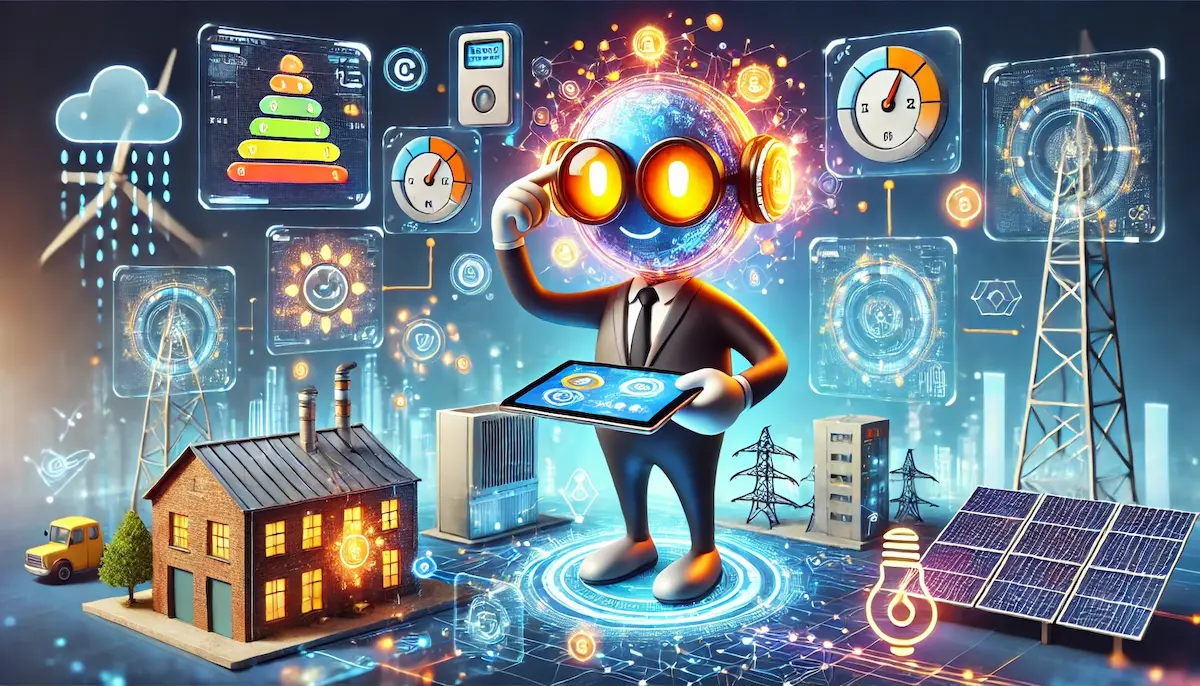Energy management is the process of monitoring, controlling, and optimizing energy consumption in a building, organization, or system. This practice aims to reduce energy costs, improve efficiency, and minimize environmental impact by implementing various strategies and technologies.
What is Energy Management?
Energy management involves a systematic approach to tracking energy usage, identifying opportunities for improvement, and implementing measures to enhance energy efficiency. It encompasses a wide range of activities, from simple behavioral changes to complex technological upgrades, and applies to various sectors, including residential, commercial, industrial, and public facilities.
Key Components of Energy Management
Energy Audits
Energy audits are comprehensive assessments of energy use within a building or organization. These audits identify areas where energy is being wasted and recommend measures to improve efficiency. Audits can range from simple walkthroughs to detailed analyses involving data collection and modeling.
Monitoring and Metering
Effective energy management requires accurate monitoring and metering of energy consumption. Advanced metering infrastructure, such as smart meters and sub-meters, provides real-time data on energy usage, enabling detailed analysis and informed decision-making.
Energy Management Systems (EMS)
Energy Management Systems are software platforms that collect, analyze, and visualize energy data. EMSs help organizations track performance, identify trends, and manage energy use more effectively. These systems often include features for setting targets, generating reports, and integrating with other building management systems.
Energy Efficiency Measures
Implementing energy efficiency measures can significantly reduce energy consumption. These measures include upgrading lighting to LED, improving insulation, installing energy-efficient HVAC systems, and utilizing energy-saving devices and appliances. Behavioral changes, such as turning off lights when not in use and optimizing equipment operation, also contribute to energy savings.
Renewable Energy Integration
Incorporating renewable energy sources, such as solar panels, wind turbines, and geothermal systems, into an energy management strategy can reduce reliance on fossil fuels and lower greenhouse gas emissions. On-site generation of renewable energy can also provide cost savings and enhance energy security.
Demand Response
Demand response programs incentivize consumers to reduce or shift their energy usage during peak demand periods. By participating in demand response, organizations can lower energy costs, reduce strain on the grid, and support the integration of renewable energy sources.
Benefits of Energy Management
Effective energy management offers numerous benefits that contribute to economic, environmental, and social well-being.
Cost Savings
One of the primary benefits of energy management is cost savings. By identifying and implementing energy efficiency measures, organizations can significantly reduce their energy bills. These savings can be reinvested into further efficiency improvements or other business initiatives.
Enhanced Efficiency
Energy management helps optimize the use of energy resources, leading to improved efficiency and productivity. By reducing energy waste, organizations can operate more sustainably and achieve better performance with fewer resources.
Environmental Impact
Reducing energy consumption lowers greenhouse gas emissions and other pollutants associated with energy production. Effective energy management supports environmental sustainability and helps organizations meet regulatory requirements and corporate social responsibility goals.
Energy Security
Implementing energy management strategies enhances energy security by reducing dependency on external energy sources and mitigating risks associated with energy supply disruptions. Renewable energy integration and energy storage solutions further contribute to a resilient energy system.
Improved Comfort and Productivity
Energy management can improve indoor comfort and productivity by ensuring that building systems, such as lighting, heating, and cooling, operate efficiently. Optimal conditions contribute to the well-being and performance of occupants.
Challenges and Future Outlook
Despite its many benefits, energy management faces challenges such as the initial costs of implementing efficiency measures, the need for specialized knowledge and skills, and potential resistance to change within organizations. However, advancements in technology, increasing awareness of sustainability issues, and supportive policies are driving the adoption of energy management practices.
The future of energy management looks promising as digitalization, smart technologies, and renewable energy sources continue to evolve. Innovations such as the Internet of Things (IoT), artificial intelligence (AI), and blockchain are expected to further enhance the capabilities of energy management systems. As global energy demand continues to rise, effective energy management will play a crucial role in ensuring a sustainable and resilient energy future.
Blockfine thanks you for reading and hopes you found this article helpful.
